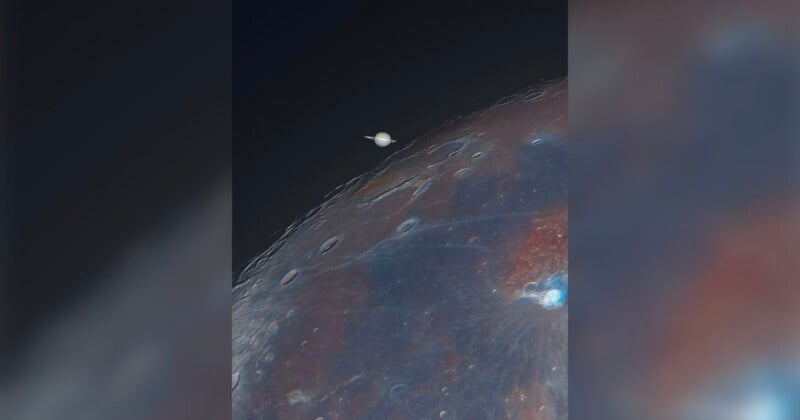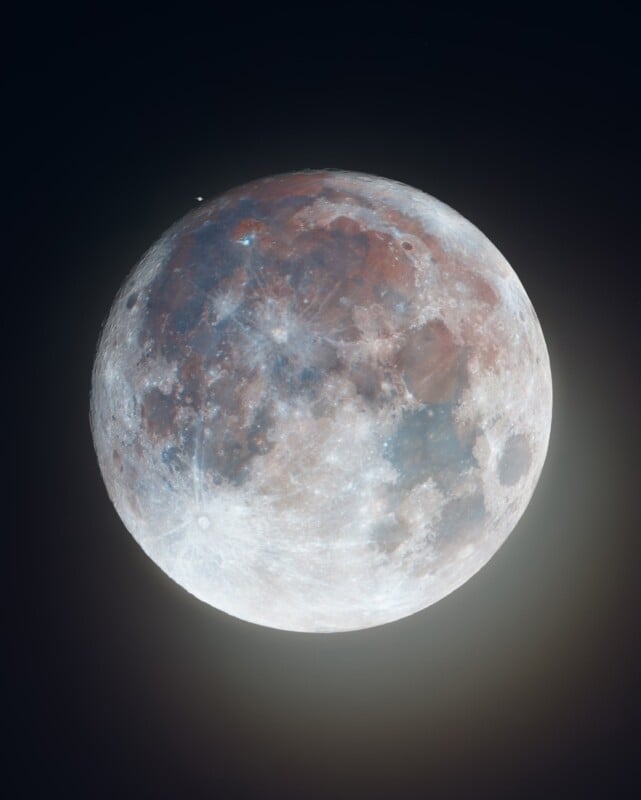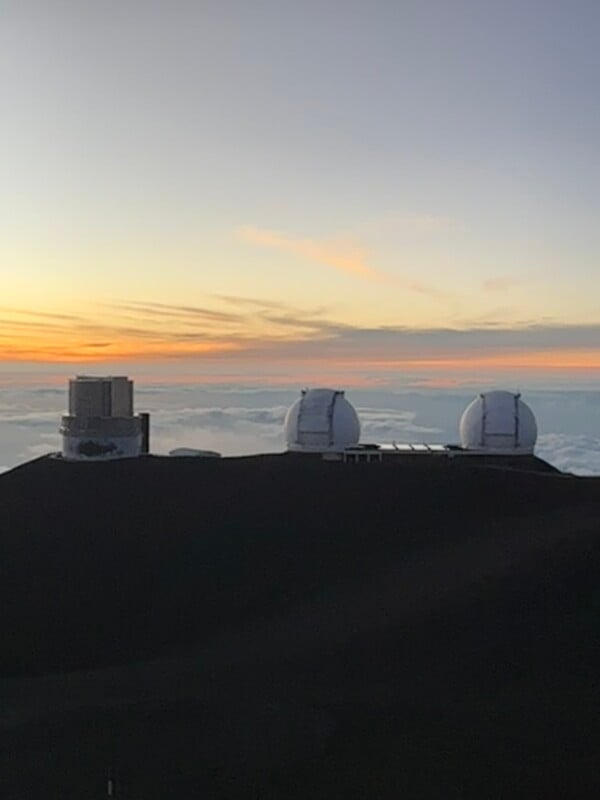Saturn Peeks Out From Behind the Moon in Incredible Image Taken at the Top of a Volcano

Astrophotographer Andrew McCarthy recently traveled to the top of the Mauna Kea volcano in Hawaii so he could capture a rare image of Saturn being occulted by the Moon.
The incredible shot of a well-resolved Saturn peeking out from behind the lunar surface was only possible thanks to McCarthy traveling to Mauna Kea which has a low latitude (close to the equator) and a high altitude meaning it is above the clouds most of the time.
“These events are fairly common, but are highly location specific,” McCarthy tells PetaPixel. “In fact, you could have seen this nearly every month over the last six months if you were willing to travel all over the world. The next one is October 14th, visible from Africa and India.”

McCarthy could have stayed at home in Arizona to get the shot but the celestial event would have been much lower on the horizon which would obscure the finer details.
“By traveling west, the event happened earlier in the evening so was much higher in the sky. Hawaii was really the only option, as the rest of the path was in the middle of the Pacific! Once I chose Hawaii, the top of Mauna Kea was an obvious choice to get above the atmosphere.”
Here’s the highly requested behind-the-scenes of my latest photo of Saturn as it was covered by the moon, including live telescope views and shots of my setup. pic.twitter.com/yUFFmpM5Dv
— Andrew McCarthy (@AJamesMcCarthy) September 22, 2024
Mauna Kea is famous for its astronomical facilities with 13 telescopes on top of the mountain. The location benefits from dark skies, high elevation, and low humidity.

Nailing the Shot
McCarthy says he borrowed a Celestron C14 — a 14-inch Schmidt-Cassegrain reflecting telescope — which has a larger aperture and allowed him to record all the details he wanted to capture on Saturn.
“This has always been a bucket list shot for me, and it nearly didn’t happen,” McCarthy explains. “Two days before the event I got the flu, and going up to the thinner air of Mauna Kea meant risking a much more serious illness.”
![]()
McCarthy says he battled through until 4 a.m. to get the shot which ultimately made his illness worse — but it was all worth it.
In the end, McCarthy shot 200,000 photos which were then loaded into a 107-panel mosaic — pushing his computer to its limits.
McCarthy named his final image Saturn’s Ingress and has made it available as a print for a limited time. It’s available here.
More of McCarthy’s work can be found on his Instagram, X, Facebook, and website.
Image credits: All photos by Andrew McCarthy.